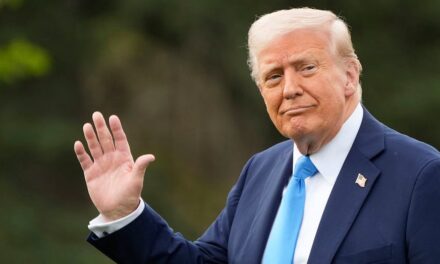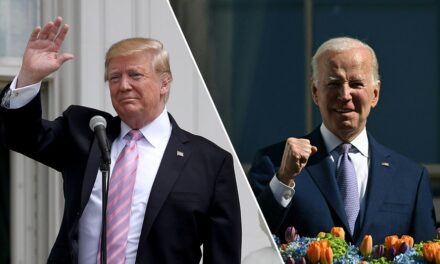In the rapidly evolving landscape of media and politics, the actions of news organizations are often under scrutiny. This scrutiny was placed on ABC News recently, as the network made headlines by letting go of renowned journalist Terry Moran. An insider from ABC News has come forward discussing the circumstances leading to Moran’s departure, emphasizing that there was ‘no alternative’ for the network but to terminate him due to an anti-Trump post that he allegedly shared.
Terry Moran, a veteran journalist with an extensive career, was known for his insightful reporting and contributions to important global conversations. However, with the highly polarized political climate in the United States and the growing expectations for journalists to maintain neutrality, Moran’s recent social media activity became a point of contention.
In recent months, the discourse around media bias has surged. Journalists, particularly those at major networks, are increasingly expected to uphold a standard of impartiality, especially on social platforms where personal views can become public. The insider’s comments shed light on the internal pressures that ABC News faced in reacting to Moran’s post.
ABC News has been a prominent voice in the news landscape, and it prides itself on delivering balanced reporting. An insider was quoted stating that the network found itself in a precarious position. “The nature of what Terry posted made it untenable for us. It was a matter of principle – we couldn’t afford to show any semblance of bias,” they said.
Such sentiments reflect a growing trend among major news outlets to distance themselves from opinions that may be viewed as politically charged. In a world constantly scrutinizing the motives and stances of the media, the expectation for journalists to be nonpartisan is increasingly emphasized. This expectation is particularly true for those in prominent roles, like Moran, who had a significant audience and influence.
The post that reportedly led to Moran’s dismissal has not been specifically detailed by ABC News. However, the implication of an anti-Trump sentiment suggests a larger narrative at play regarding political rhetoric and media responsibility. In a time where social media can amplify messages instantaneously, the risks associated with any perceived favoritism are amplified. Insiders insist that for ABC, it was essential to act swiftly in maintaining their journalistic integrity.
This incident has reignited discussions on the relationship between media and politics. The journalism community wrestles with how individual opinions can shape public perception, especially in the context of a deeply divided political landscape. Critics argue that firing a seasoned journalist for expressing personal views on social media undermines the principles of free expression. Others, however, believe that public figures must adhere to a stricter code of conduct, especially in highly visible roles in mainstream media.
In the past, many journalists have faced backlash for their online conduct, leading to a series of firings, resignations, or public admonishments. Social media platforms, which were initially celebrated as avenues for authentic engagement, have morphed into battlegrounds for ideological conflict. ABC News, in this case, seemed to be prioritizing its corporate image over an individual’s right to express opinions.
Moran’s exit was not just an isolated incident, but rather a reflection of broader trends within the media industry. Outfits across the spectrum have been operating under intense scrutiny, balancing between journalistic freedom and the perceived expectations of neutrality. Instances like this underline the ongoing struggle that networks face when their journalists engage in personal expression that might conflict with the corporation’s values.
This tension has prompted some media analysts to question whether journalists should be more cautious about their public personas. The idea that public controversy can result in the loss of jobs sends a strong message. For many, this situation may serve as a precedent, warning journalists about the potential consequences of straying beyond the bounds of what is considered acceptable commentary.
Moreover, Moran’s firing evokes larger themes of accountability and ethics in journalism. It raises questions about the borders of personal expression and professional responsibility. What responsibility does a journalist have when sharing their views? Do they represent just themselves, or do they also symbolize the outlet for which they work? These are complex questions without straightforward answers, but they are indeed essential to navigating modern journalism.
As ABC News moves forward, it must grapple not only with the fallout from this event but also with how to guide staff in the delicate balancing act of expressing individuality while remaining committed to the mission of unbiased reporting. ABC has conveyed its commitment to fostering an environment that upholds journalistic standards, but they must also recognize the complexities of an evolving media landscape.
In the aftermath of Moran’s departure, industry observers will undoubtedly keep a close eye on how ABC News reshapes its policies regarding social media use by staff members. Clarity in these guidelines will likely help mitigate future issues and maintain the integrity of the network. But the question remains: how flexible can organizations be in allowing their journalists to express themselves while still upholding their reputation for impartial reporting?
While many may support the action taken by ABC News, believing it to be necessary to preserve journalistic standards, others may view it as a suppression of free speech. In a country that values freedom of expression, this incident is a stark illustration of the tensions between individual rights and organizational expectations.
This debate will likely continue as journalists navigate an increasingly polarized landscape. As the relationship between media and politics evolves further, the repercussions of individual actions within the realm of journalism will remain in focus. The case of Terry Moran can serve as an instructive lesson on the responsibilities that come with the privilege of being a voice in the media that impacts public opinion and informs societal discourse.
As more journalists potentially face similar crossroads, the dialogue surrounding the limits of personal expression in professional settings will only broaden. How networks respond to these challenges will shape the future of journalism and its standards, making it a pivotal subject for ongoing discussion and reflection within the industry.
Ultimately, the fallout from Moran’s anti-Trump post raises crucial questions about the division between personal opinion and professional duty, one that both journalists and media organizations must grapple with as they navigate their roles in an increasingly complicated public sphere.
































